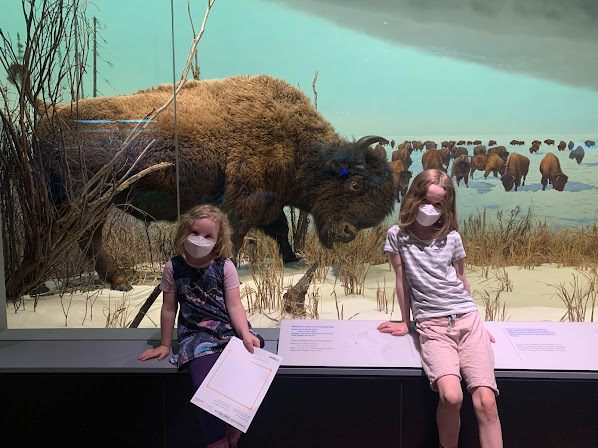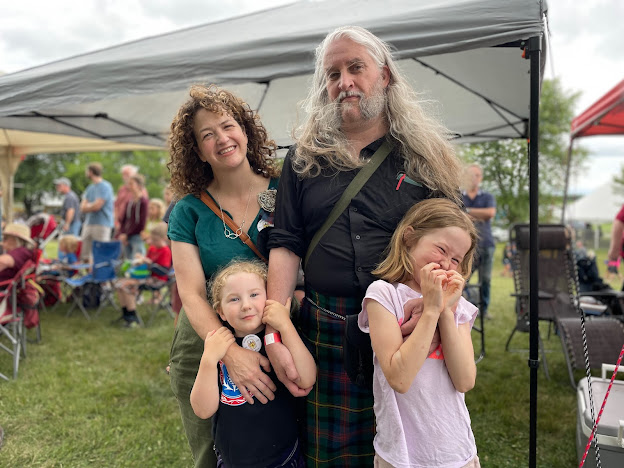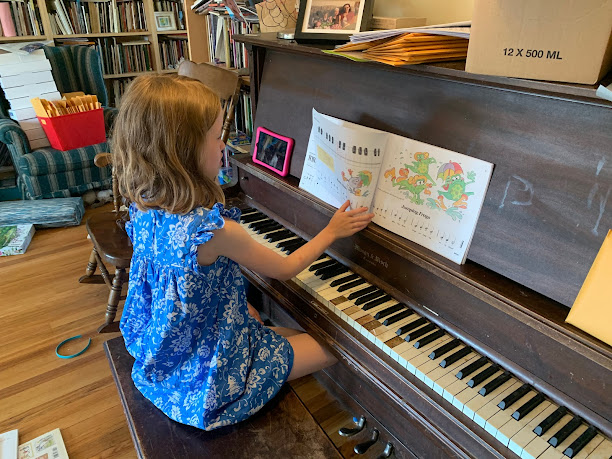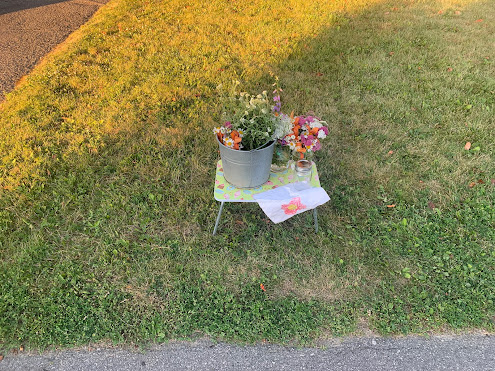 |
| The Museum of Nature |
July saw our wee monsters in a variety of activities, including a five day stretch Christine and her mother took the children to Winnipeg to meet Christine's Oma and two maternal aunts, which I took as an opportunity to attempt to return into my novel manuscript. I took the opportunity to hit a few patios here and there to attempt longer stretches of novel-writing, away from the distractions of household requirements and email. July was all novel. I wrote in the backyard, I wrote at the Carleton Tavern, I wrote at the terrible, terrible sportsbar on Bank Street, I wrote in our dining room. I even managed an hour or two of writing during those afternoons with our young ladies at the neighbourhood wading pool, if you can imagine.
Their flights to and from Winnipeg (I think through Toronto, en route) were fine enough, and now our young ladies think that Winnipeg is a marvellous and even fancy city, given they saw little but hotels and a museum or two (as well as at least one family member's house). We want to go back to that fancy place, Rose says. Well, then. And once they were home, we even managed an afternoon moving through every floor of the Museum of Nature, their first museum jaunt (in Ottawa, at least) since this all began. That part was tough on Rose over the first year or two, the lack of ability to museum. I'm hoping to get her back into the National Gallery of Canada at some point this fall, if possible. Perhaps on one of her PD days.
 |
| forest school, Aoife |
I think they did a week of bike day-camp after that, and even nearly a week with father-in-law in Picton, which furthered me into the novel. July was all novel. In Picton, I think they spent the bulk of their time in the pool. They attended a week of forest school, something they've both been doing throughout the pandemic, their only (and outdoor) in-person activities through any of this period, until this past summer, honestly. They did a week of day-camp at the school Rose will be attending this fall (in part to get her comfortable in the new space). I did attempt to get them into either our inflatable pool in the backyard this summer (an hour or two to inflate and fill it, for twenty minutes of their attention, before returning inside), but they weren't really going for it. They seemed more eager for such, say, last summer, or the summer prior. I managed to convince them a couple of times over the past few weeks to the local wading pool, the same pool my mother took my cousins back in the 1960s. They weren't always into it, but if I could convince them, we were there most of the afternoon. On the final day of the pool, naturally, it was raining, and the lifeguards weren't letting anyone in. The young ladies were crestfallen. Let's go home, they said.
Why do they always close the city pools so early?
 |
| Larry Sawyer |
 |
| Jim Johnstone |
We finally had my great-grandparents' (WWI-era) piano tuned, and Rose latched immediately onto the possibility. I picked up a beginner's book for her, which she burned through in three days. I took thirteen years of lessons (but haven't played regularly since the 1980s), so I could assist her for most of it, but she clearly requires an actual teacher. She's been working through a second book as well. And did I mention that they've been fundraising? Rose has been over a year planning on a family trip to Harry Potter World or whatever through Universal, and has a money jar stashed to save up for such. They even had a flower business at the base of our yard, where I think they made some forty dollars. I was impressed by their work, neighbours clearly wandering by and tossing in change. Forty dollars! This picture is from the original days of such, not long after which Christine built a sign suggesting 'pay what you can' for flowers and herbs, so apparently that worked well enough.
 |
| Aoife in cousin Paul and Carla's Orleans pool |
There was Greg Kerr's memorial, which I found a bit rough (although I saw a bunch of folk I really hadn't seen much of since the 1990s). We visited Christine's cousin in Orleans, and managed their pools a couple of times. We went over to visit Jason Christie and his family. We caught a few visits with people in the backyard, distanced. Bardia Sinaee came to visit. David O'Meara came over to visit. Natalie Morrill came to visit. The children met Natalie's brand-new (nine weeks!) puppy, Gus. I saw Amanda Earl randomly at Staples. I went over to Monty Reid's backyard for an afternoon. I had a drink at the Carleton Tavern with Jason Christie. Stephen Brockwell and I launched poetry books at his local establishment. I attended a Michael Blouin book launch at a brewery I didn't know existed, mere blocks from our house. I went over to visit with brother Darren and his wife Trish, attended by birth mother (the first time we'd all been together, which was curious). And we even managed the Glengarry Highland Games for the first time during this period as well, during which one of Christine's cousins (her father's cousin Frank, to be precise: who kept referring to himself as Uncle Frank, so I've been calling him "Cousin Uncle Frank") organized an extended McNair gathering, which was fun.

And yes, I wore my kilt. See?
Over the past few weeks, the children had a variety of swim lessons behind the RA Centre by Billings Bridge, which was interesting. I didn't even know that was back there! It's a huge building (and apparently my parents had their wedding reception there). I hadn't actually been in or near the building before, so that was curious. And Aoife and I even saw a very impressive rainbow (we had to stop the car as we were leaving to look at it properly). Oh, and Christine had a car accident less than two blocks from our doorstep (she was en route to a rare massage, which had to be rescheduled). We have yet to find out if our car is a write-off or repairable, according to insurance. Bah and bah. So close we could see Christine from our front yard, awaiting the police. She is fine, but she's irritated and slightly achy (which she has been attending, don't worry).
And why is this delightful Gary Barwin book out of print? That seems terrible to me.









